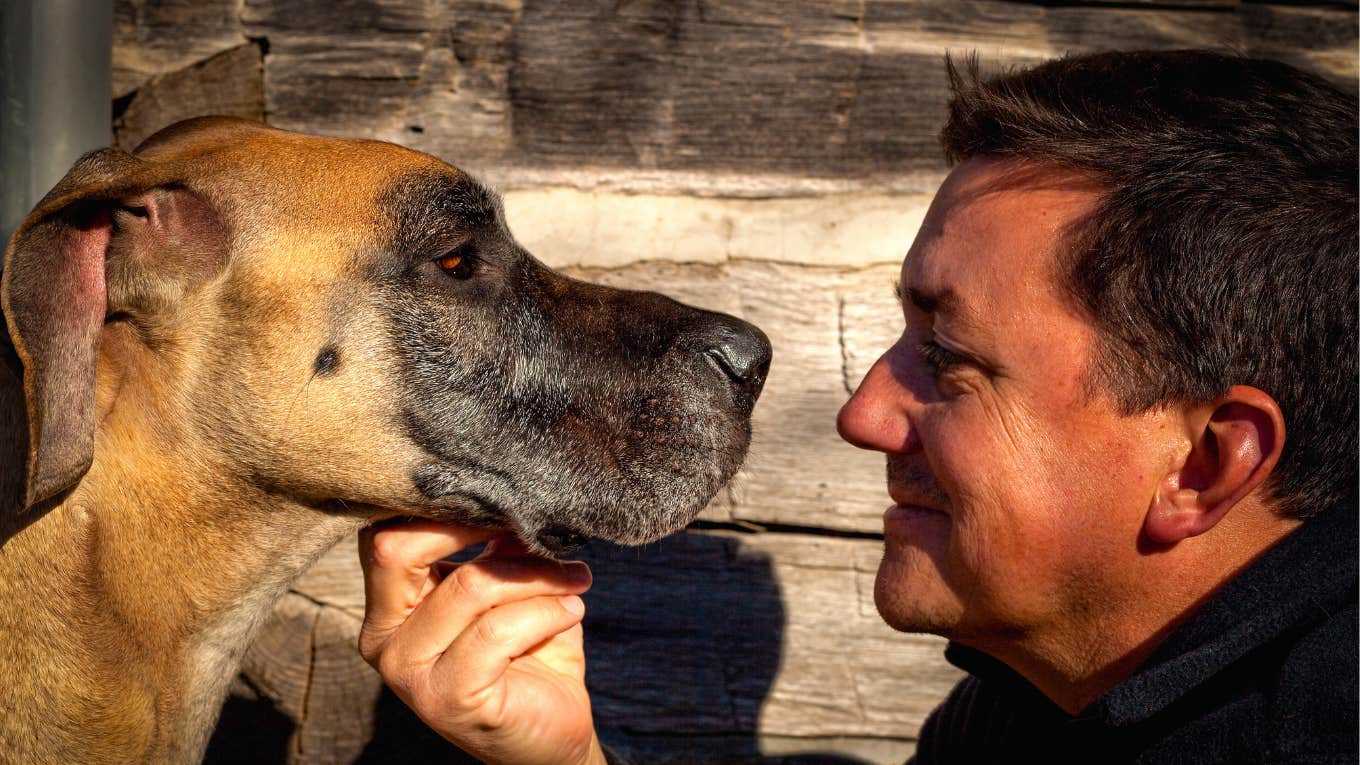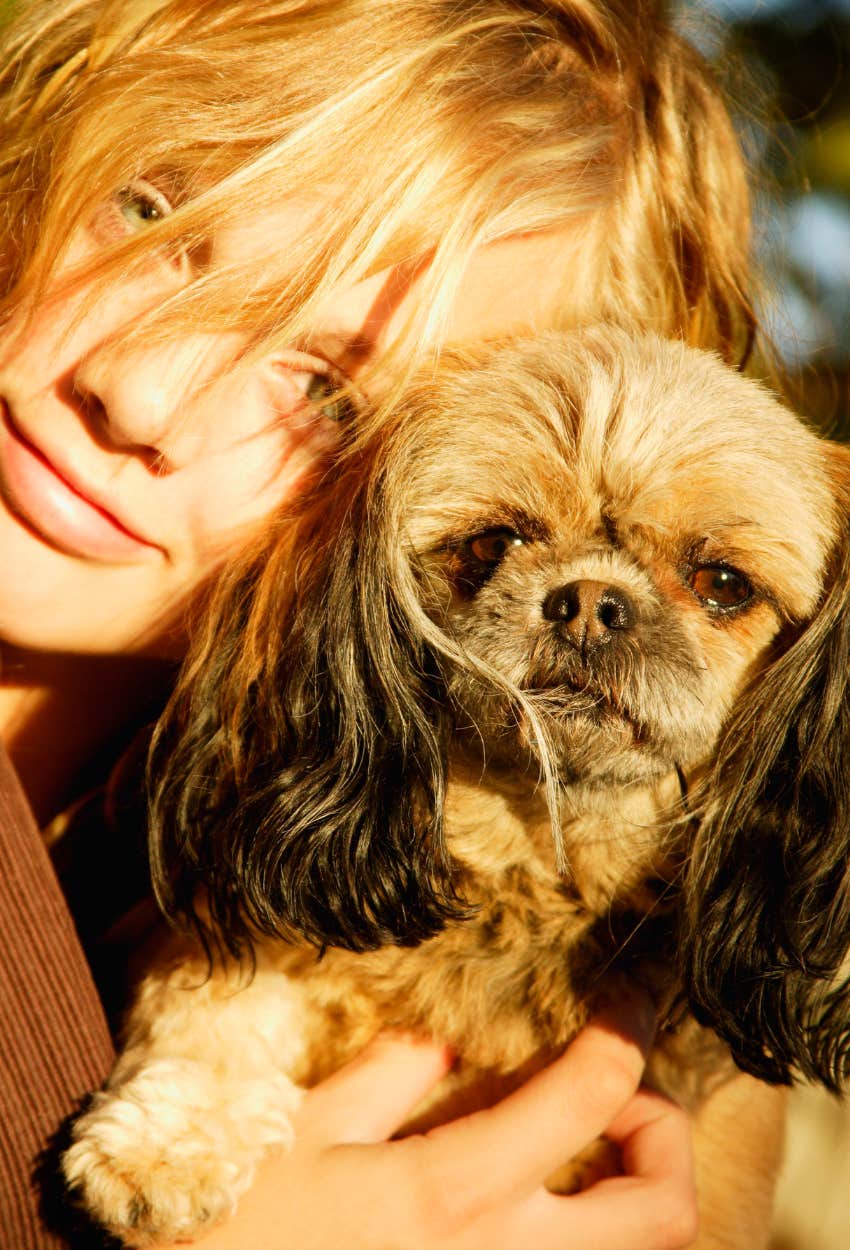Why People Always Seem To Look & Act Exactly Like Their Pets, According To Research
No, you're not just imagining it — you really do look like your dog!
 dmussman | Getty Images | Canva Pro
dmussman | Getty Images | Canva Pro We've likely all witnessed the weird phenomenon where, over time, pet owners seem to begin resembling their cat or, especially, their dog more and more. It's almost as if they were made for each other and hence share characteristics or something. What's that about? Science hasn't nailed that down exactly, but it has come up with some pretty ear-raising correlations. (See what I did there?)
Research reveals why people always seem to look like their dogs.
There's perhaps no more heartbreaking scenario than having to part ways with a dog because it's a mismatch with the owner or family. It's even more difficult when the dog is a specially trained guide dog, for example, about a third of which are returned for lack of compatibility despite the roughly $50,000 it costs to train one.
German researchers at the Max Planck Institute of Geoanthropology and Friedrich Schiller University are trying to solve this problem by figuring out how human-canine compatibility can be determined without all the trial and error.
"We are interested in understanding what makes a good dog-owner match and to find out how we can find the right dog for a person," Yana Bender, one of the study's authors, told The Economist. "To do that, we first need to establish the status quo: Are dogs and their owners generally more similar or more different?"
In digging into that question, Bender and her colleagues discovered actual evidence for what many of us have noticed over the years. There are a lot of dog owners out there who seem to be twinned-up with their pooches.
Studies have found that humans tend to choose dogs that remind them of their own appearance.
Bender and her colleagues studied multiple affinities humans and dogs have with each other in order to establish what creates the most harmonious match. But the one that seemed to be the most studied was physical appearance.
It turns out, tons of studies have indicated that not only do dogs and their owners tend to resemble each other, but we humans can usually pair a dog with its human if shown pictures of the two.
 rick734 | Canva Pro
rick734 | Canva Pro
Numerous studies have shown, in fact, that we can do this with an accuracy and consistency that cannot be attributed to luck-of-the-draw alone, and we can do it with shockingly little information. One study, for instance, found that subjects could correctly pair a dog and its owner based solely on photos of just their eyes.
Other studies Bender and her team reviewed found other intriguing similarities, like one that found women with short hair tend to gravitate toward dogs with short ears like the Husky or Basenji, while people with longer hair tend to like breeds like the Beagle or the Springer Spaniel, known for their general floppiness.
Scientists believe this is part of the innate tendency of humans to prefer people who are similar to them.
Psychologists have known for eons that human beings tend to favor other people who look and behave similarly to them. That tendency is, of course, part of many of our societal ills, but it's also part of how we formed cultures and tribes in the past.
It seems we apply this innate choosiness to dogs, as well, and it goes beyond just appearances. Introverts tend to have dogs who are more nervous and skittish around strangers, neurotic types have been found to have dogs who are more aggressive, and conscientious humans' dogs tend to be easier to train, to name just a few examples.
But where this differs from the affinity in appearance is that it appears to go both ways. Dogs have been found to BECOME more nervous over time, for instance, when taken home by an anxious person, and the opposite can be true, too.
Bender believes this might all be related to another rather bizarre phenomenon we've probably all noticed: Human couples tend to resemble each other the longer they're together. Of course, we have a lot more to go on when choosing a partner; they can talk and tell us things about themselves, for starters.
But it seems that our choice of a dog might not be up to mere chance or cuteness after all, but rather a calculated decision based on perceived commonalities. No wonder they so often feel like our soulmates.
John Sundholm is a writer, editor, and video personality with 20 years of experience in media and entertainment. He covers culture, mental health, and human interest topics.

